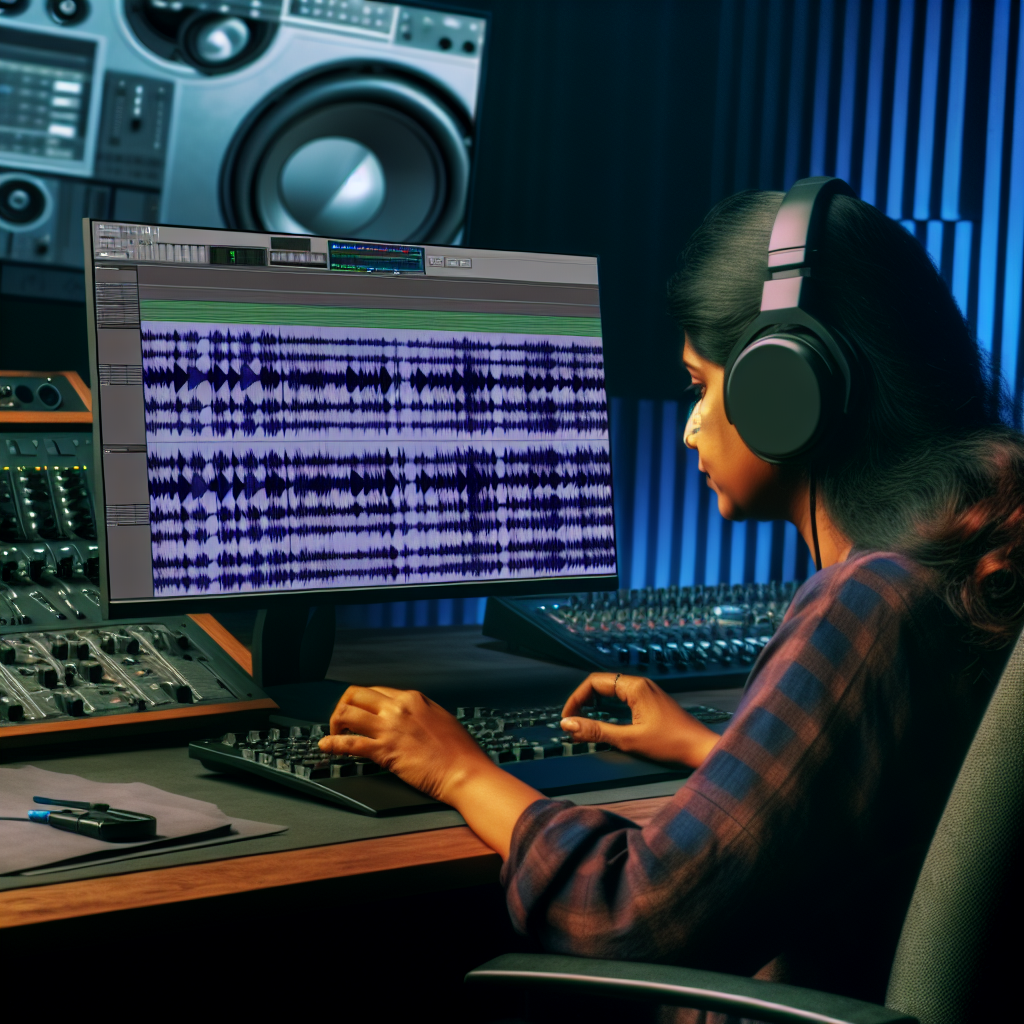Mastering Game Audio with OpenAL in C++: A Comprehensive Guide

Welcome to our comprehensive guide on mastering game audio with OpenAL in C++. This guide is designed for gameplay programmers who are familiar with Super+ programming, but newbies to the field of audio programming. Don't worry if you're a novice in this niche, with a bit of effort and our step-by-step walkthrough, you'll be able to leverage OpenAL in your projects in no time. Let's dive in!
Understanding the Basics
Before we embark on this sonic journey, it's important to note that this tutorial is primarily aimed at gameplay programmers. If you're new to Super+ programming, some aspects may seem challenging, but with dedication and effort, you'll be able to follow along.
Obtaining OpenAL Soft
When it comes to OpenAL, it's crucial to be careful about where you source your files. While the first Google result might lead you to a download from Creative Labs, it's no longer free as Creative Labs acquired the reference implementation of OpenAL. However, the OpenAL standard remains open, and we'll be using an implementation called OpenAL Soft, which is freely available on GitHub.
Installing CMake
Like most Super+ libraries, OpenAL Soft leverages CMake to build project files. Hence, you'll need CMake to generate your Visual Studio project. You can download it from their official website, ensuring you choose the right version for your operating system.
Downloading and Building OpenAL Soft
The next step involves downloading OpenAL Soft by cloning the GitHub repository. Once you've cloned the repository and navigated to the "build" folder, you'll use CMake to generate the Visual Studio project files. This process may take some time, but once completed, you'll have a successful build of OpenAL.
Setting Up Your Project and Configuring Visual Studio
After building OpenAL, it's time to create your project that will utilize OpenAL. You'll need to configure Visual Studio to ensure your project works correctly with OpenAL. This involves copying and pasting the OpenAL library files into your project's folder and creating a folder for OpenAL header files. You'll also need to tweak your Visual Studio project settings to work smoothly with OpenAL.
Loading Audio Files and Playing Audio with OpenAL
Before you can play audio with OpenAL, you'll need to learn how to load audio files. For this purpose, we'll use a separate library called AudioFile. This library is a header-only library that facilitates the loading of .wav audio files. Once you've set up your project and loaded your audio files, you'll write some code to play the sounds using OpenAL.
Using the AudioFile Library and Alternatives
In addition to the AudioFile library, we'll explore an alternative for loading audio files called the Dr. WAVE library. Both libraries offer similar functionalities for loading .wav audio files, but they are licensed differently. Depending on your project's requirements and commercial intentions, you can choose the one that suits you best.
Wrapping Up
In this tutorial, we've covered the basics of setting up OpenAL in C++ on Windows, from getting OpenAL Soft and installing CMake, to downloading and building OpenAL Soft. We've also explored how to load audio files using the AudioFile library, played audio with OpenAL using sound sources, and cleaned up our resources.
By now, you should be well-equipped to incorporate audio into your projects using OpenAL. As always, if you have any feedback or suggestions, feel free to leave a comment below. Happy coding!
Highlights:
- Understanding the basics of setting up OpenAL in C++ on Windows
- Learning how to obtain OpenAL Soft and install CMake
- Downloading and building OpenAL Soft using CMake
- Configuring your project in Visual Studio
- Loading and playing audio files using OpenAL
- Leveraging the AudioFile library for loading audio files
- Exploring alternatives to the AudioFile library for loading audio files
- Cleaning up your resources post audio play with OpenAL
- Starting to incorporate audio into your projects
Frequently Asked Questions:
Q: What is OpenAL?
A: OpenAL is an open-source audio API that offers a cross-platform solution for spatialized audio playback and capturing.
Q: Can I use OpenAL in my game development projects?
A: Absolutely! OpenAL is a popular choice in game development and can significantly enhance your project's audio experience.
Q: How can I install OpenAL Soft?
A: You can install OpenAL Soft by downloading the software implementation from GitHub and building it with CMake.
Q: Can I use the AudioFile library to load audio files for commercial games?
A: The AudioFile library carries a GPL license, which might have certain implications for commercial game development. You might want to consider using an alternative library with a less restrictive license if you plan to sell your games.
Q: Are there alternatives to AudioFile for loading audio files?
A: Yes, Dr. WAVE is a worthy alternative. It's a header-only library for loading .wav audio files and provides functionalities similar to AudioFile but under a different license.
Q: How do I clean up resources after playing audio with OpenAL?
A: Post audio play, you should delete sound sources, delete buffers, make the current context null, destroy the context, and close the audio device to clean up resources.
Q: Are there resources to learn more about OpenAL and game audio?
A: Yes, the "Game Audio via OpenAL" document is an excellent resource to explore more about OpenAL and game audio. You can find the link to the document in the description.
Welcome to our comprehensive guide on mastering game audio with OpenAL in C++. This guide is designed for gameplay programmers who are familiar with Super+ programming, but newbies to the field of audio programming. Don't worry if you're a novice in this niche, with a bit of effort and our step-by-step walkthrough, you'll be able to leverage OpenAL in your projects in no time. Let's dive in!
Last updated: May 10, 2025